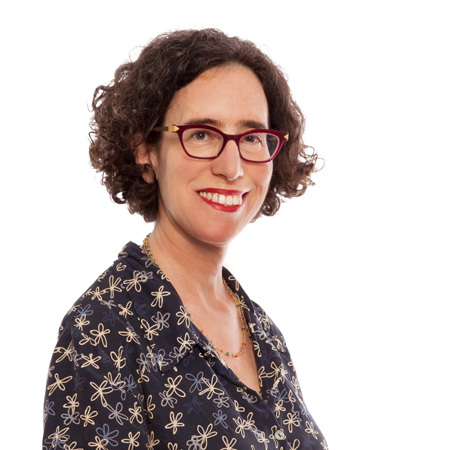Victims’ Right to Truth: The Changing Faces of International Criminal Law
Professor of International Law Leora Bilsky delivered BU Law’s 2016 Kleh Lecture.

Professor Leora Bilsky delivered Boston University School of Law’s Kleh Lecture on October 20, 2016. Bilsky joins the BU Law faculty as the William and Patricia Kleh Visiting Professor in International Law for the 2015–2016 academic year. She is visiting from Tel Aviv University, where she serves as a professor of law and the Director of the Minerva Center for Human Rights. Bilsky’s scholarship on international criminal law and political trials have led to a critical analysis of the emergence of a new human right: a victim’s right to truth. In this year’s Kleh Lecture, Bilsky examined how a victim’s right to truth applies to trials conducted in international criminal courts, and the consequences that follow.
At the foundation of Bilsky’s lecture was a discussion of how the right to truth has emerged in the international community and what it means for victims and other actors in the trial system. The right originated in Latin America as a response to regional kidnapping trials. Amnesty granted to military officials was impossible to challenge, and the right to truth emerged as an alternative to criminal prosecution. This led to the creation of truth commissions, designed to focus on the victims of these crimes. Bilsky noted that, for these victims, the truth commissions represented the first acknowledgement by a state body that their claims are legitimate and the atrocities committed were truly wrong.
This ideology has since developed, and the Inter-American Court of Human Rights has found that individuals can require the state to prosecute those responsible for human rights violations. Courts began to nullify amnesty granted by the state as the right to truth grew to incorporate a right to criminal investigation. As a result, the right to truth began to take root in the international community and has introduced some controversial issues into the field of international criminal law.
Bilsky explained that the place of victims in international criminal proceedings is still very much a contested issue. Ordinarily, criminal trials assign victims a very narrow role in the proceedings, usually only allowing for testimony as a witness. This narrow focus has been criticized by scholars as an obstacle for dealing with the complexity of international mass crimes. In response, the search for truth was shaped by the movement of victims’ rights. Bilsky made special mention of this controversy, noting that the horrors and magnitude of mass human rights violations triggered concerns that testimonies from victims would appear unreliable and motivated by revenge. This tension has shaped the role victims play in international criminal trials; Bilsky used the Nuremberg trials as an example, where Jewish victims were not permitted to testify.
Change began in the 1990s because of a strong push from the victims’ right movement and feminist organizations. These organizations demanded international crimes be redefined to include sexual violence, and in doing so they began linking victims with the search for the truth. They argued for a change of procedure to allow for protected testimony of women.
It is here that Bilsky turned a critical and analytical eye toward the development of the courts. While the truth was employed as the main rationale for granting new participation rights for victims, she argued that the reality has become an expansion of the courts discretionary powers. For example, judges have broadened and changed the scope of the truth sought to be established in a trial, explaining that the interest of the victims requires closing the gap between legal and factual truth. Bilsky also explained that the new interpretation of international codes, such as the Rome Statute, allows victims to form their own theories and strategies for the case even if it diverges from the prosecutions’. Thus, victims have been transformed into de facto parties to the trial. The expansiveness of the right to truth has even resulted in the defense arguing in some trials that the entire truth be brought by the victims, and making arguments not from a due process standpoint but from a truth standpoint.
Throughout her lecture, Bilsky emphasized that it is vital to challenge the notion that the development of the right to truth is a natural and inevitable phenomenon. The transplantation of the right to truth from human rights law to international criminal law, she noted, requires frank discussion of its benefits and risks.
Reported by Christian Saucedo (’18).